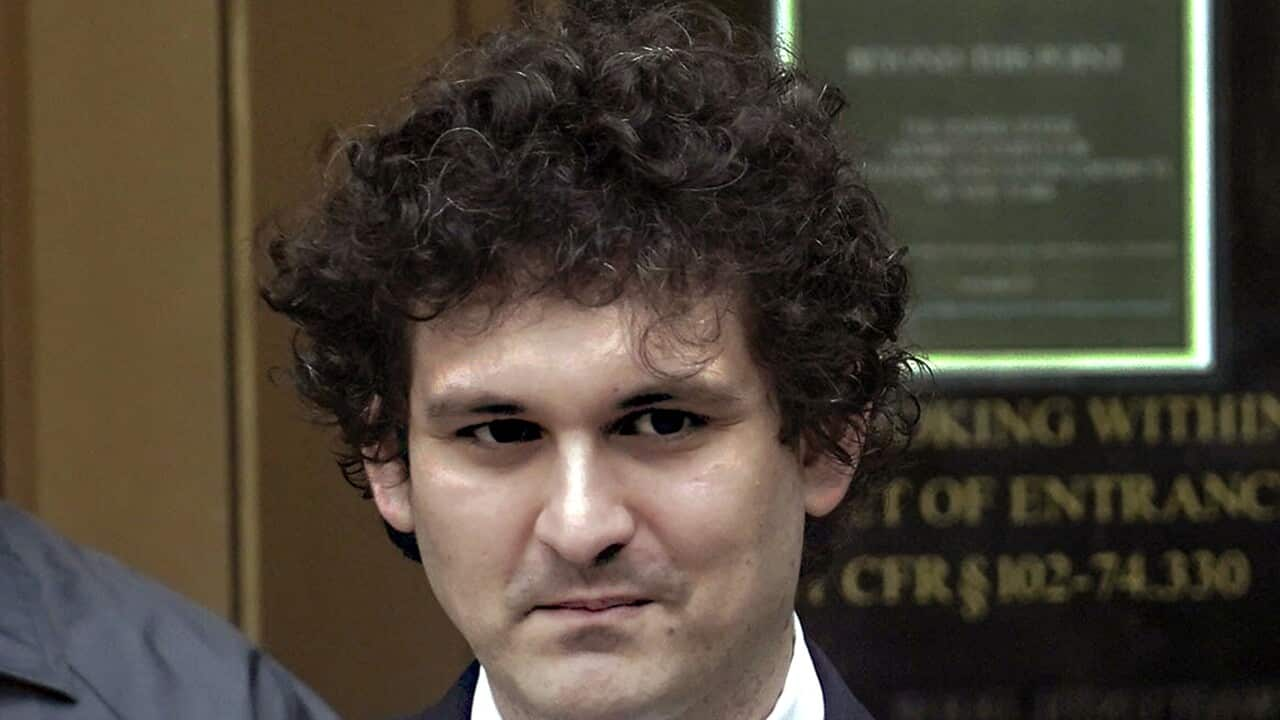Key Points
- Sam Bankman-Fried has been sentenced to 25 years in prison for fraud.
- He founded FTX, which became world's second largest crypto exchange platform.
- His team used the money of customers to cover risky operations by an affiliated trading company.
He was the face of cryptocurrency and a young one at that — a media darling seemingly destined to unite the sector.
But the stunning rise of Sam Bankman-Fried and his FTX platform would be matched by an equally spectacular fall when it was revealed that billions of dollars of clients' funds had been moved and spent without their consent.
After a jury in 2023 found him guilty of seven counts, a federal judge in New York sentenced Bankman-Fried on Thursday to 25 years for leading the fraudulent scheme.
Before it all came crashing down, the native Californian had amassed a fortune at one point estimated to be worth US$26 billion ($39.9 billion).
"Save for Mark Zuckerberg, no one in history has ever gotten so rich so young," read a headline in Forbes, which put Bankman-Fried on its cover in October 2021.
In the span of a few months, the Massachusetts Institute of Technology graduate with a degree in physics had taken the startup he co-founded in 2019 and built it up into the world's second-largest crypto exchange platform.
He quickly became more than just a young entrepreneur, fashioning himself as an ambassador of crypto and making his first appearance in Congress in December 2021, testifying before lawmakers on the then-novel form of currency.
What did Sam Bankman-Fried do?
The son of two Stanford University professors, Bankman-Fried ventured outside the world of cryptocurrencies, making donations to US politicians and persuading celebrities like American football star Tom Brady and basketball player Stephen Curry to pitch FTX, endorsements for which they were richly rewarded.
He devised project after project, from a platform for people to make donations in cryptocurrency to Ukraine to a market for financial derivative products that stepped on the toes of Wall Street.
A vegan, Bankman-Fried said he believed in the concept of effective altruism — finding the best way to help other people, in particular by donating all or part of one's wealth to charity rather than, say, volunteering at a soup kitchen.
When the cryptocurrency world lurched into crisis in the spring of 2022, Bankman-Fried billed himself as a saviour, buying the troubled platform BlockFi, and shares in another company that was in trouble, Voyager.

Sam Bankman-Fried founded the company FTX. Source: Getty / Olivier Douliery / AFP
Without their knowledge, Bankman-Fried's team used the money of FTX customers to cover risky operations by an affiliated trading company called Alameda Research, as well as to buy posh real estate and to make political donations.
His fortune having vanished overnight, Bankman-Fried was extradited from the Bahamas, where FTX had its headquarters. In December 2022 he was indicted on charges of fraud and racketeering.
After five weeks of trial, the jury quickly reached a guilty verdict on all seven counts, which carry a potential maximum sentence of 110 years behind bars.
In closing arguments, the defence said their client had acted in "good faith" and was overtaken by circumstances and the financial ineptitude of close associates who testified against him to gain leniency from prosecutors.
Prosecutors portrayed the defendant as an extremely smart man consumed by greed who knew what he was doing when FTX funds were secretly funnelled to his personal hedge fund.
According to prosecutors, at the time of the bankruptcy of FTX, just over US$8 billion ($12 billion) belonging to customers had vanished into bad investments at Alameda.
"Who had control? That's the question. It was one person: the defendant," the lead prosecutor concluded.











